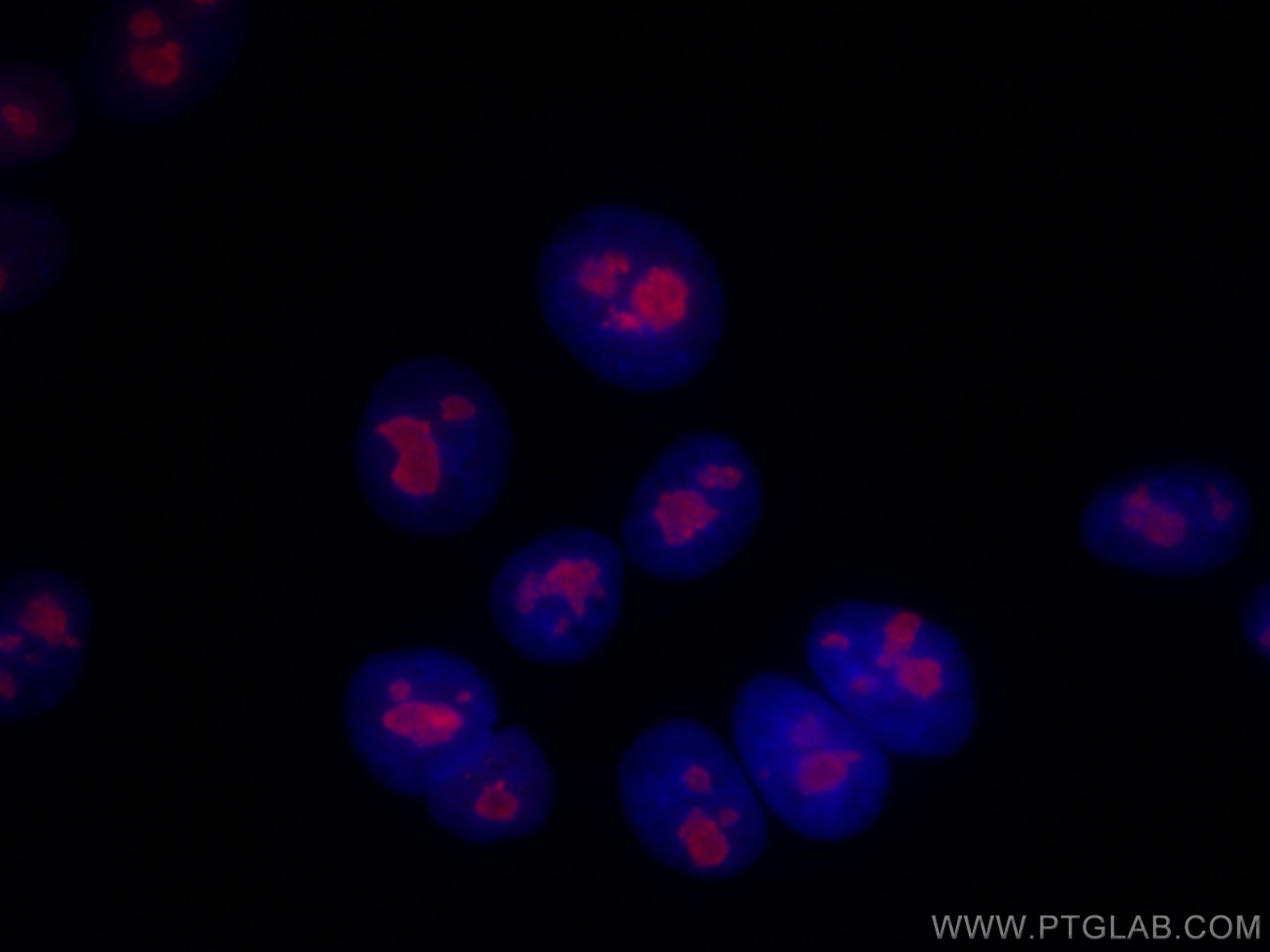- Phare
- Validé par KD/KO
Anticorps Polyclonal de lapin anti-RBM15
RBM15 Polyclonal Antibody for IF/ICC
Hôte / Isotype
Lapin / IgG
Réactivité testée
Humain, rat, souris
Applications
IF/ICC
Conjugaison
CoraLite®594 Fluorescent Dye
N° de cat : CL594-10587
Synonymes
Galerie de données de validation
Applications testées
| Résultats positifs en IF/ICC | cellules HepG2, |
Dilution recommandée
| Application | Dilution |
|---|---|
| Immunofluorescence (IF)/ICC | IF/ICC : 1:50-1:500 |
| It is recommended that this reagent should be titrated in each testing system to obtain optimal results. | |
| Sample-dependent, check data in validation data gallery | |
Informations sur le produit
CL594-10587 cible RBM15 dans les applications de IF/ICC et montre une réactivité avec des échantillons Humain, rat, souris
| Réactivité | Humain, rat, souris |
| Hôte / Isotype | Lapin / IgG |
| Clonalité | Polyclonal |
| Type | Anticorps |
| Immunogène | RBM15 Protéine recombinante Ag0938 |
| Nom complet | RNA binding motif protein 15 |
| Masse moléculaire calculée | 105 kDa |
| Poids moléculaire observé | 100-107 kDa |
| Numéro d’acquisition GenBank | BC006397 |
| Symbole du gène | RBM15 |
| Identification du gène (NCBI) | 64783 |
| Conjugaison | CoraLite®594 Fluorescent Dye |
| Excitation/Emission maxima wavelengths | 588 nm / 604 nm |
| Forme | Liquide |
| Méthode de purification | Purification par affinité contre l'antigène |
| Tampon de stockage | PBS with 50% glycerol, 0.05% Proclin300, 0.5% BSA |
| Conditions de stockage | Stocker à -20 °C. Éviter toute exposition à la lumière. Stable pendant un an après l'expédition. L'aliquotage n'est pas nécessaire pour le stockage à -20oC Les 20ul contiennent 0,1% de BSA. |
Informations générales
RNA-binding motif protein 15 (RBM15) belongs to the SPEN protein family, which have repressor function in several signaling pathway, and may bind to RNA through interaction with spliceosome components. It was first described as a 5′ translocation partner of the MAL gene in t(1,22)(p13;q13) infant acute megakaryocytic leukemia, and it functions in murine hematopoiesis through modulating Notch-induced transcriptional activation, which play crucial roles in leukemogenesis. Decreasing RBM15 levels with RNA interference could inhibit the growth and proliferation, block the cell cycle, and induce apoptosis in CML cells.
Protocole
| Product Specific Protocols | |
|---|---|
| IF protocol for CL594 RBM15 antibody CL594-10587 | Download protocol |
| Standard Protocols | |
|---|---|
| Click here to view our Standard Protocols |


